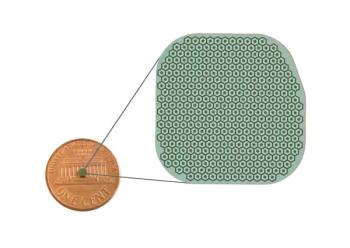
Eye contact makes conversations more interesting, study results show
Eye contact marks the rise and fall of shared attention in conversation
New research shows that when people converse, their pupils periodically synchronize, signifying moments of shared attention.1
According to researcher Sophie Wohltjen, a graduate student in psychological and brain sciences at Dartmouth College in Hanover, New Hampshire, eye contact signals that two people are in peak focus when they are having a conversation. It helps people connect, keeps a conversation going, and helps to avoid stale conversation.
Background and findings
For the study, 94 participants watched 10-minute conversations over video while wearing eye-tracking glasses. They rated how engaged they were after seeing the discussions.
The researchers studied pupillary reactions when people make eye contact. They found that the onset of pupil synchrony is associated with higher levels of engagement.
Although it has been assumed that eye contact causes synchrony, the study results found that it can actually disrupt this process.1
“We make eye contact when we are already in sync, and, if anything, eye contact seems to then help break that synchrony. Eye contact may usefully disrupt synchrony momentarily in order to allow for a new thought or idea,” says co-author Thalia Wheatley, PhD, professor of psychological and brain sciences at Dartmouth.1
According to Wheatley, conversation is a creative act in which people come together to build a shared story from their own voices, and the eyes play an important role in that process.
Reference
1. Wohltjen S, Wheatley T. Eye contact marks the rise and fall of shared attention in conversation. Proc Natl Acad Sci U S A. 2021;118(37):e2106645118. doi:10.1073/pnas.2106645118
Newsletter
Want more insights like this? Subscribe to Optometry Times and get clinical pearls and practice tips delivered straight to your inbox.



























